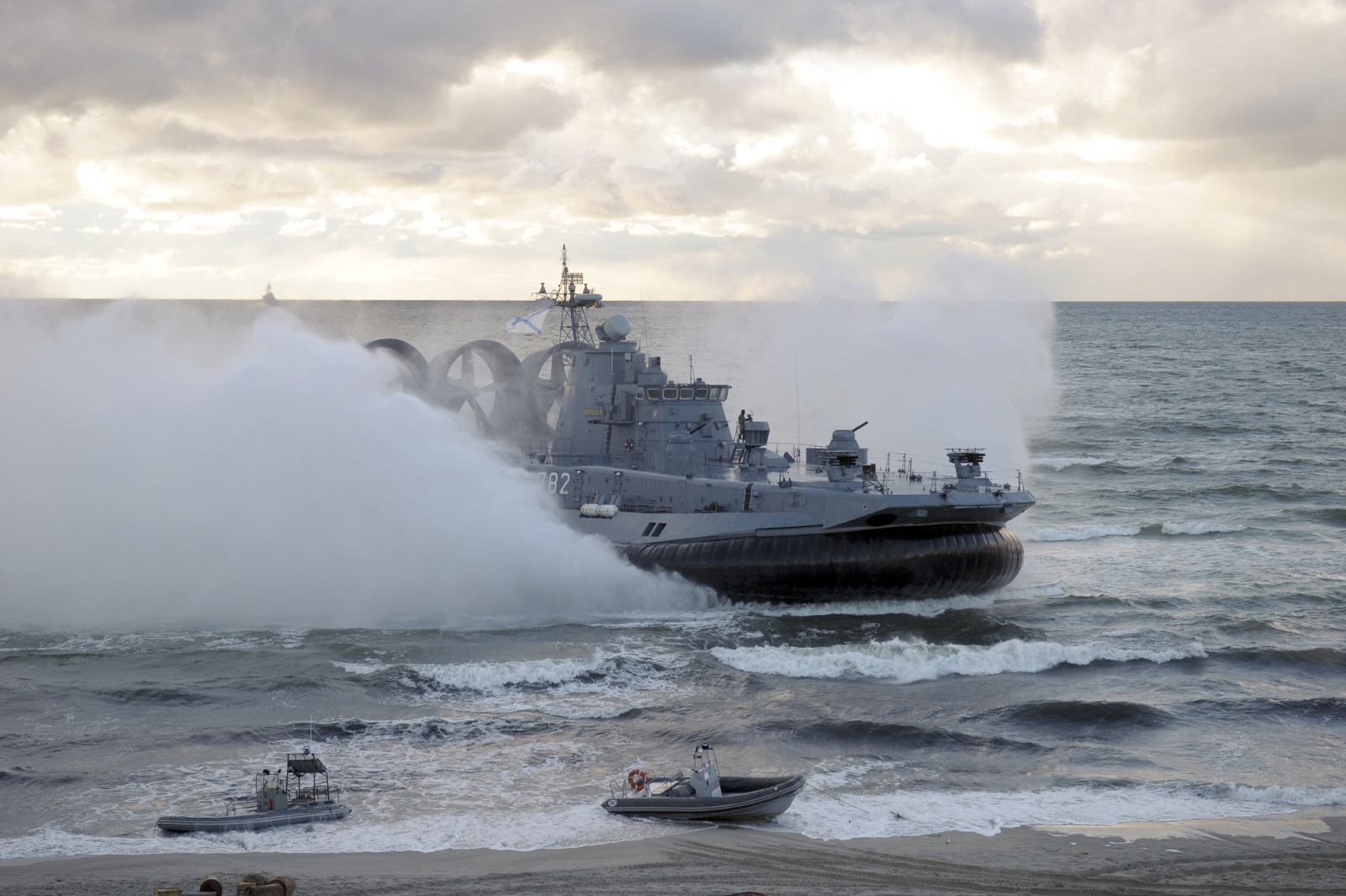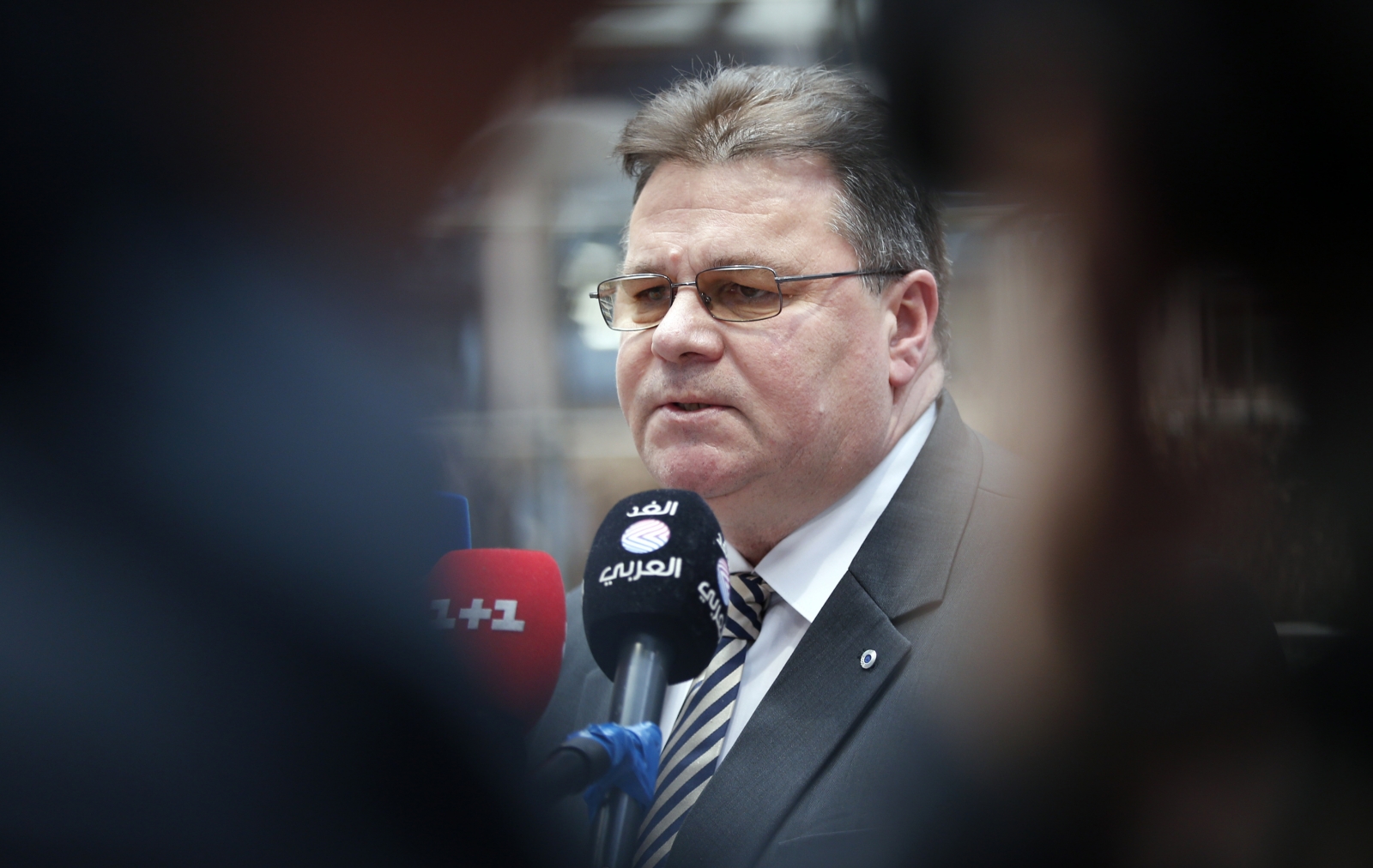Vladimir Putin hybrid war in Baltics: Lithuania calls for EU unity amid Russian cyberattacks




Russia is waging a "hybrid war" to destabilise the Baltic States, Lithuania's foreign minister said, warning President Vladimir Putin will only grow more brazen if the West falters before his threats.
In an interview with IBTimes UK, Linas Linkevičius said his government was concerned about a recent Russian military build-up close to its borders at a time where Vilnius was already facing an information war with Moscow and witnessing the first signs of a possible cyber-conflict.
Speaking after it was revealed that the Kremlin has warned the US it is ready to use nuclear weapons to enforce its claims on Crimea and the Baltic States, Linkevičius confirmed Russia has been pouring "all sorts of weapons" into the highly militarised enclave of Kaliningrad in recent weeks.
"We are quite concerned about this concentration of armaments," he said, specifying they have seen growing numbers of aviation weaponry and short-range Iskander ballistic missile being deployed in the Russian land squeezed between Lithuania and Poland.
The minister said Russian warplanes flying from Kaliningrad, which is home to the Russian Baltic fleet, to St Petersburg have been increasingly shifting their routes from the sea towards Lithuania's overland airspace, triggering a record number of intercept flights.
"We have had to activate our air policing capabilities, using Alpha Scrambles up to eight times a week, which has never happened before," Linkevičius said, adding that also Russian sea troops had engaged in "intense" activities adding to the existing tensions.
Lithuania is one of the most hawkish Nato members when it comes to relations with their giant neighbour.
It is the only country that has openly admitted supplying lethal military aid to Ukraine. Vilnius has also recently increased its military spending, reintroduced conscription and launched its first liquefied-natural-gas terminal to scale down energy dependence from Moscow.
Sanctions
Speaking exclusively to IBTimes UK, Linkevičius said it was generally satisfied with measures taken at the last Nato summit in Wales but criticised his EU allies for the lack of unity recently displayed, urging them to go ahead with plans to renew sanctions on Russia.
In a veiled critic to Greece, he said EU governments should look at their long-term strategies rather than seeking to please the home public in the short term.
Postponing this headache of a week or two months will not solve the situation
Greece's new leftist prime minister, Alexis Tsipras, has made no secret of his opposition to a new round of measures, which need the unanimous consent of EU leaders to be put in place.
In March, the EU agreed to delay a vote on the prolongation of existing sanctions to June, raising fears the Kremlin was being successful in sowing division among the 27 member states.
"Postponing this headache of a week or two months will not solve the situation" Linkevičius said. "By not acting we are being provocative, contributing to the crisis ourselves, "he said. "I am not saying we should be aggressive but we have to be consistent and implement what we have decided ourselves. We cannot retreat because otherwise that vacuum will be filled immediately".
Cyberattacks and propaganda wars
The minister said Russia has already started to deploy "hybrid war" tactics, including cyber-attacks, against Lithuania.
"There have been some cyberattacks against information websites and companies, some of which could be located sourcing from Russia," he said.
In October 2014, it was reported that hackers suspected of ties to the Kremlin had been snooping on Nato and the EU exploiting a bug in Microsoft Windows.
There have been some cyberattacks against information websites and companies, some of which could be located sourcing from Russia
Linkevičius said the attacks suffered by Lithuania were not of such an extent to be considered strategic threats at the moment but their nature could change in the future.
Russian attempts to ramp up ethnic tensions also represented a security issue, he said, explaining Moscow has engaged the Baltic states in an information war for the loyalty of their Russian minorities.
The Kremlin has justified its annexation of Crimea and backing or pro-Russian separatists in eastern Ukraine on the grounds that Russian ethnic minorities there were allegedly being discriminated against by Kiev.
In September 2014, the Russian foreign ministry used a similar rhetoric to warn about the "far-reaching, unfortunate consequences" that the Baltic states were to face due to their alleged breaches of their Russian populations' rights.
Linkevičius said the Western response to Russian propaganda has to be improved and the EU is working on the creation of alternative, independent channels of information for Russian speakers.
Misinformation is not a huge problem for Lithuania as Russians, who make up 6.5% of the population, and are "well integrated and difficult to manipulate", he said, but the situation is sensibly different in Latvia and Estonia where minorities represent a much higher share of the total inhabitants - 27% and 24% respectively.
© Copyright IBTimes 2025. All rights reserved.






















